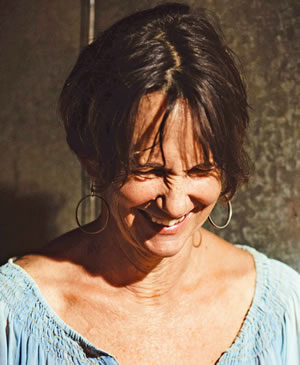|
Once upon a time, as a dopey undergrad in early-1980s Missoula, Montana, I took a couple of writing workshops from Barry Hannah, who blew into town like a Mississippi cyclone and blew out the following spring like a man falling off a horse, one foot still stuck in the stirrup. It was an experience I wouldn't trade for the world, though by no means did it resemble a typical education of any sort. No question, this is the reason I treasure it so much.
For one thing, Barry had a voice, in his life and in his writing, that wouldn't quit. He had a lot to say—much of which, on its face, had nothing to do with writing. He would, for example, occasionally appear in class wearing a flight suit (god only knows where he got it) and regale us with tales of flying F-14s overnight (last night) to shoot the tails off of Russian subs in the Bering Sea. Example two: rumor had it he'd once shot at his ex-wife with a bow and arrow. When asked about it, he said, in his languid Mississippi drawl, "No. I shot an arrow into her front door. I was trying to send her a message." "Crazy" was a word not infrequently applied to Barry, and to say not everyone in the department (or in town) approved of his style would be putting it mildly. But his students loved him, and boy, could he write.
Here's a thing: if Barry were writing the same stuff now, I can't imagine how he'd get away with it. His wild-white-boy Southern vernacular would set the blogosphere afire, for good reason, and many would no doubt be outraged at his characters'/narrators' apparent misogyny, racism, homophobicism (not a real word, but perhaps it should be), and immediately discount his work on account of it. 1
The way I saw it then and still see it today: Barry was blindly in love with everyone and everything, and words are what he loved most of all, and they are what he had with which to express his love. He didn't hedge his bets, and the sentences he fashioned—those holy, celestial, bonkers sentences—oh my god. As Wells Tower put it after Barry died, "He wouldn't leave a sentence alone until he'd electrified every word… After Hannah, you couldn't let yourself write a 'Then he picked up a coffee cup' sort of sentence ever again." 2
Barry also famously said he didn't care about plot, though he probably did, but it doesn't really matter: the point is you have to crawl before you can walk, and crawling, in this case, is learning to love words—from which everything else generates—and learning to work them so that your writing is not merely a case of getting from Point A to Point B. Because merely getting from Point A to Point B—just having a "good story"—is ultimately boring, and we certainly don't want to be that.
And so, regardless of how his work would be received today, what I learned from Mr. Hannah is this: do go for broke, balls to wall, take risks, be brave, shoot the antennas off of submarines and arrows into front doors if you have to. There will always be plenty of people to tell you you're doing it wrong, but it is not your job to listen to them. Your job is to write the best you possibly can, remembering that there is an almost infinite number of ways to say the same thing, to tell the same story. Be original with yours, and take as much care as possible, with the words (those treasured things) when you are telling it.
|
|
1 I would argue that a closer reading would provide some nuance here, but a rush to judgment, lately, seems all the rage. A different topic for another time, but for the moment I will say there is more than one way to look at a thing, and it would be good to keep in mind that all legitimate fiction writing is representational, of characters who are not us, and if we worry too much that readers will confuse us with our characters, we aren't going to get too far.
2 https://www.vanityfair.com/culture/2010/03/writers-remember-barry-hannah
|


